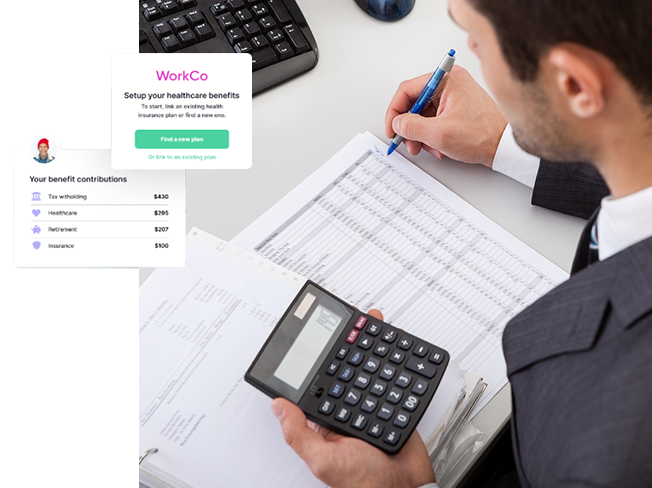
The capacity to formulate well-informed and strategic judgments is imperative for the prosperity and long-term sustainability of any given organization. To succeed in this complicated environment, organizations depend on management accounting, a crucial area of expertise within accounting.
This blog will thoroughly analyze management accounting, its critical significance in the decision-making process, and the diverse capabilities that render it an essential instrument for achieving organizational objectives.
Managerial Accounting Definition
According to the Oxford Dictionary, “The techniques used to collect, process, and present financial and quantitative data within an organization to help effective performance measurement, cost control, planning, pricing, and decision making are called management accounting or managerial accounting.
In contrast to financial accounting, which primarily focuses on the disclosure of financial data to external entities (e.g., regulators and investors), the objective of managerial accounting is to assist internal stakeholders (e.g., managers and executives) in making effective choices that contribute to the attainment of organizational objectives.
Functions Of Management Accounting
The responsibilities of management accounting reside in its ability to furnish critical organizational decision-makers with current financial and non-financial information. This data is the basis for many business operations, encompassing organization, planning, direction, and control.
By examining internal and external occurrences, management accountants assume a critical function in accumulating and approximating data, providing a holistic perspective directing high-level decision-making.
-
Strategic Planning
Effective planning is the foundation of the success of an organization. Management accounting plays a vital role in planning and forecasting by furnishing comprehensive reports and data that are indispensable for making informed decisions.
As part of the overall planning process, a management accountant might generate reports to assist in identifying more profitable products and services, optimizing pricing strategies, and formulating budgeted financial statements.
Example
Consider a manufacturer to launch a new line of products. To facilitate the planning process, management accountants may undertake a comprehensive cost analysis, project potential sales figures, and suggest pricing strategies that maximize profitability.
-
Decision Making
When making decisions in a business setting, the optimal path among competitive alternatives must be selected. This is facilitated by the analytical information provided by management accounting concerning numerous options.
Dominators can make informed decisions that align with the organization’s objectives by utilizing various analytical tools, including variance analysis, budget comparisons, cash flow forecasts, scenario construction, and what-if analysis.
Example
A management accountant may assess the effect of various marketing strategies on sales and profitability in the retail industry. This evaluation aids in formulating advertising budgetary, promotional, and product placement strategies to optimize return on investment.
Worried About Tax Season?
Say goodbye to stress and let us manage your
numbers with meticulous care.
-
Organizing
A clearly defined organizational structure is critical to effectively converting strategic plans into tangible outcomes. Management accounting facilitates the ability of organizations to regulate or adapt their operations and activities in response to evolving circumstances through the provision of reports and information.
Example
An e-commerce enterprise operating in a dynamic market may employ management accounting reports to modify its organizational framework, guaranteeing adaptability in the face of fluctuating market trends and consumer demands.
-
Controlling
To ensure the achievement of organizational objectives, the control process includes monitoring, evaluating, and rectifying actual outcomes. The performance reports produced by management accounting serve as critical elements in emphasizing both realized and anticipated performances, facilitating the implementation of corrective measures when needed.
Example
A hospitality business like a hotel chain can use management accounting or healthcare accounting that reports to compare revenues and expenses against budgeted figures. If discrepancies arise, management can implement cost-cutting measures or adjust pricing strategies to align with financial goals.
-
Financial Statement Analysis
Management accounting transcends the limitations of conventional financial reporting by incorporating the analysis of financial statements. This process entails a thorough assessment of financial information, encompassing balance sheets, cash flow statements, and income statements. This analysis provides invaluable insights for predicting future conditions by comprehending an organization’s financial position and operational performance.
Example
A tech startup seeking venture capital may conduct a thorough financial statement analysis with management accountants. This analysis provides potential investors a clear understanding of the startup’s financial health and growth potential.
-
Communication
Management accounting is essential for internal and external communication between an organization and the business environment. Because distinct informational requirements exist among different tiers of management, management accounting customizes its reports to fulfill these particular requirements.
To facilitate the decision-making processes of intermediate and lower management, they may necessitate more comprehensive and frequent updates, whereas upper management may demand periodic, high-level information.
Example
In a multinational corporation, management accountants are crucial in communicating financial information to diverse stakeholders, including executives, department heads, and investors. They tailor reports to address the specific information needs of each audience, ensuring effective communication across the organization.
-
Coordinating
Management accounting provides a range of tools that facilitate coordination within an organization. These tools comprise budgeting, financial analysis, interpretation, and financial reporting. By employing these tools strategically, profits are maximized, and efficiency is increased.
In addition, management accounting facilitates coordination through the reconciliation of financial and cost accounts, the preparation of budgets, the establishment of standard costs, and the analysis of variances to support management by exception.
Example
In a manufacturing environment, management accountants coordinate with production managers to set standard costs for materials and labor. By analyzing variances between standard and actual costs, they identify areas for improvement and guide decision-making to enhance operational efficiency.
What Is the Difference Between Management And Accounting
In distinguishing between management accounting and financial accounting, it’s essential to recognize their unique organizational roles.
| Management Accounting | Financial Accounting |
| Helps internal decision-making | Outsourcing accounting services provides external financial reporting. |
| Internal management and decision-makers | External stakeholders, investors, IRS |
| Future-oriented | Historical |
| Not legally required | Legally required for external reporting. |
| Predictive and not immediately verifiable | Historic and verifiable |
| Tailored to the needs of management | Typically, periodic (e.g., quarterly, annually) |
| No specific regulatory standards | Follows generally accepted accounting principles (GAAP) or International Financial Reporting Standards (IFRS) |
| Broader includes non-financial data. | Focused on financial transactions |
| Accounting management experts rely on financial accounting for data. | Financial accounting operates independently. |
Challenges and Innovations in Management Accounting
To present a comprehensive perspective, it is critical to recognize the dynamic nature of the management accounting field. Automation, technological progress, and data analytics have recently transformed the industry. Presently, management accountants are equipped with advanced instruments that facilitate the analysis of data in real time, the generation of forecasts, and the development of scenarios.
Following are the obstacles management accountants encounter when attempting to adjust to these advancements and the potential benefits of integrating technology into management accounting practices.
The following are the challenges:
The escalating dependence on digital platforms and cloud-based solutions presents management accountants with data security and privacy-related obstacles. Priority is given to protecting sensitive financial data to avert unauthorized access and potential disruptions.
-
Skillset Evolution
Continuous skill development is imperative for management accountants due to the swift progression of technology. Proficiency in data analytics, machine learning, and artificial intelligence is essential to exploit the capabilities of the tools at hand fully.
-
Integration of Systems
Organizations frequently employ diverse systems to perform specific functions, which presents difficulties in seamlessly integrating data. Such an absence of integration may impede the development of a comprehensive and unified view of financial information by fostering data silos.
-
Regulatory Compliance
Management accountants face a hurdle in a constantly changing world of regulatory regulations. Being vigilant and taking a proactive approach are required to adapt financial reporting methods to comply with shifting standards.
Tailored Solutions to
Your Business
Needs
We believe that each business is unique, which is
why we tailor our bookkeeping services to meet your
specific needs. From companies to established businesses,
we have your back!
Contact-Us
The following are innovations:
-
Predictive Analytics
Management accountants can use predictive analytics to forecast forthcoming trends, facilitating proactive decision-making. Through historical data analysis and pattern identification, organizations can forecast market shifts and subsequently adapt their strategies.
-
The Blockchain System
Blockchain provides a transparent and secure method for documenting financial transactions. Due to its decentralized structure, financial information is more dependable, reducing the likelihood of fraudulent activities and safeguarding the integrity of financial records.
-
Cloud-based alternatives
Financial data management is facilitated by a scalable and adaptable infrastructure provided by cloud computing. It enhances decision-making agility by enabling management accountants to access and analyze information in real time from any location.
-
Advanced Data Visualization
Management accountants can present complicated financial data in a style that is simple to comprehend when they use sophisticated data visualization technologies. Enhanced transmission of insights can be achieved through interactive dashboards and visual representations.
Wrapping Up
The efficacy of management accounting resides in its capacity to convert data into practical understandings, thereby furnishing a strategic plan for the triumph of the organization. By effectively utilizing the data and insights from management accounting, organizations can notably augment their levels of output and effectiveness. Management accounting is fundamental in facilitating strategic decision-making, enabling businesses to navigate the intricate business environment and attain long-term prosperity.
Unlock financial success with Books and Balances Inc.’s specialized management accounting services. Beyond that, we offer professional Bookkeeping services, strategic Financial Management, and insightful Business Analytics.
Lighten Your Load with
Affordable BookKeeping
Packages
We offer competitive packages that won’t break the bank,
and up-front pricing so you know exactly what you’re getting
as your return on investment.

Choosing a Professional Bookkeeping Service
When selecting a professional bookkeeping service, consider their experience, reputation, and the range of services they offer. It’s also crucial to check how they handle data security.
With advances in technology, online bookkeeping is becoming more common. It offers flexibility, accessibility, and real-time financial data, making it an attractive option for many businesses.
Books and Balances: Your Partner in Full Charge Bookkeeping
Books and Balances offer an extensive range of bookkeeping services for small businesses, including full charge bookkeeping. The team of highly skilled professionals at Books and Balances is well-equipped to handle every aspect of bookkeeping. Here, we can handle everything from managing day-to-day financial transactions to preparing detailed financial reports. We go beyond typical bookkeeping duties by providing strategic insights to help businesses make informed financial decisions.
We take pride in its high-quality service, ensuring clients can focus on other important aspects of business. This dedication to quality and customer service sets Books and Balances apart in bookkeeping. Contact us today for your Bookkeeping needs.



